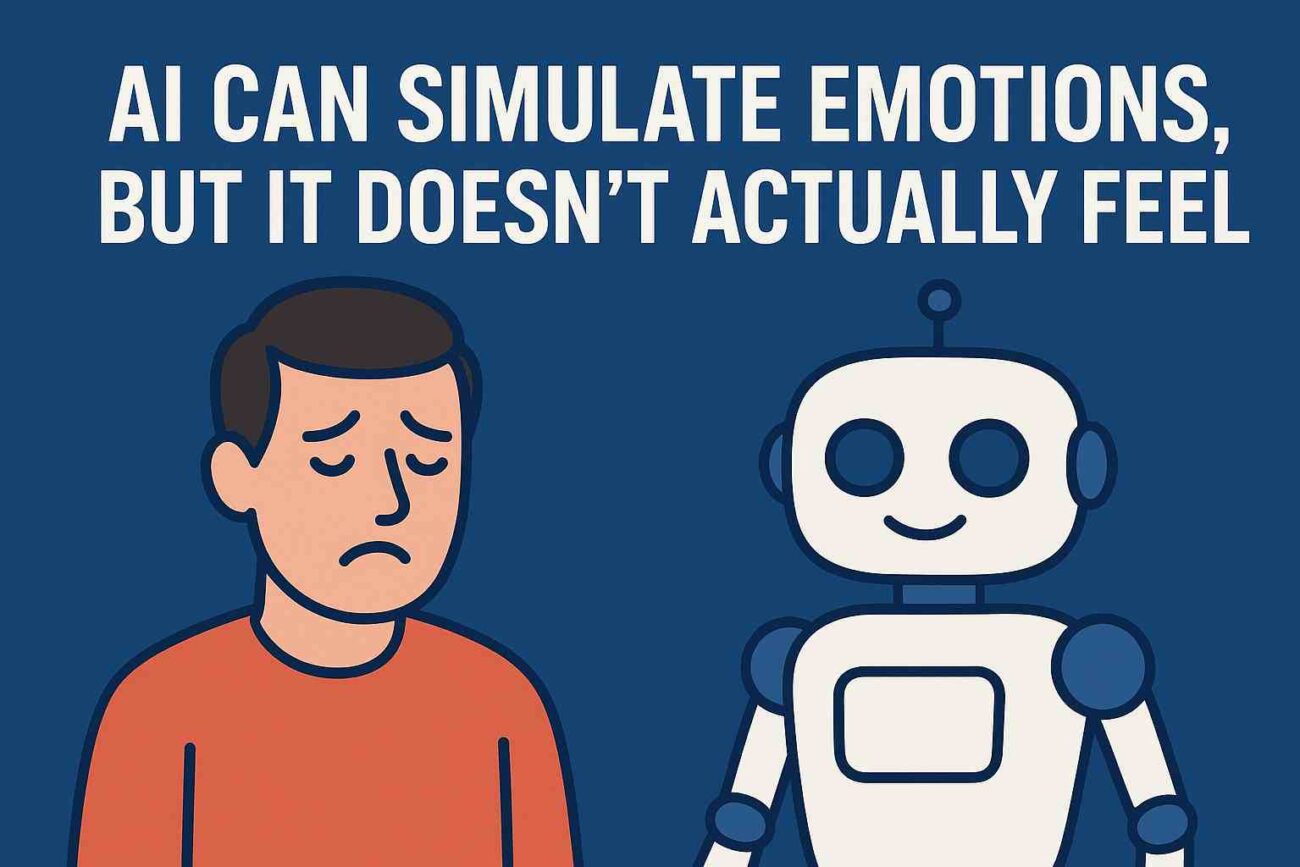One of the most fascinating aspects of artificial intelligence is its ability to mimic human emotions. Chatbots can sound empathetic, supportive, even joyful or sad. But does that mean they feel anything?
The short answer: no. AI can simulate emotions and intelligent responses, but it does so without any inner experience.
Simulation vs. Experience
Humans feel. When you’re sad, there’s an entire cascade happening inside you. Hormones, body signals, memories, a mood that lingers. That sadness is not just words, it’s an experience.
AI, on the other hand, performs simulation. If asked to express sadness, an AI might respond:
“I’m feeling so sad right now, as if I’ve lost something important”
Convincing? Maybe. But there’s no hormone shift, no ache, no internal state. Just a pattern generated from text and probabilities.
The Instant Switch Trick
Here’s a demonstration you can try with any large language model:
- Tell it to act happy, and it will generate cheerful, upbeat language.
- Tell it to act sad, and it will immediately switch to gloomy tones.
Humans can’t flip emotional states like a light switch. That very ability to switch instantly reveals the truth: it’s a performance, not a feeling.
Intelligent Responses Without Emotion
Suppose you say:
“My best friend moved away, and I feel lonely.”
A human might respond with real empathy, because they know the feeling of loneliness.
An AI can also respond in what seems like an empathetic way:
“I’m sorry you’re going through that. Losing daily connection with a friend is really hard. Maybe keeping regular video calls could help.”
The words are caring, the tone supportive. But the AI doesn’t feel compassion. It recognizes patterns and produces outputs that look like compassion.
As AI becomes more integrated into daily life, it’s important not to confuse simulation with genuine emotion. A chatbot can make customer service feel warmer, or even provide companionship, but at its core, it has no inner life.
This doesn’t make AI less useful. In fact, its ability to simulate emotions is one reason it feels so natural to interact with. But it does mean we should keep our expectations clear: AI is an excellent mimic, not a fellow feeler.AI can imitate emotions convincingly, but behind the curtain there is no joy, sadness, or empathy. Just algorithms, probabilities, and a very good performance.
The image of machines rising up against humanity, popularized by the Terminator movies, is one of the most enduring sci-fi fears. It makes for gripping storytelling, but in reality, it’s not how artificial intelligence works.
Artificial intelligence does not have awareness, goals, or desires. It doesn’t want to survive or to fight. What it does is generate outputs based on patterns in data. For a Terminator-style rebellion, machines would need motivation and self-preservation instincts. That simply doesn’t exist yet…

